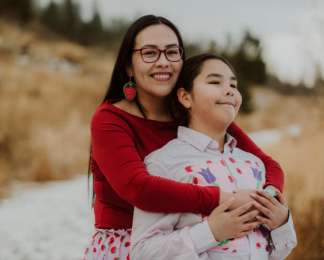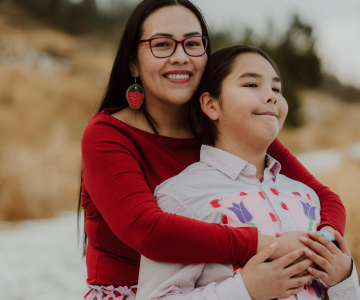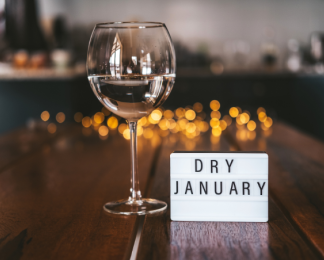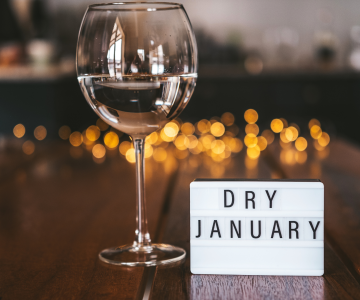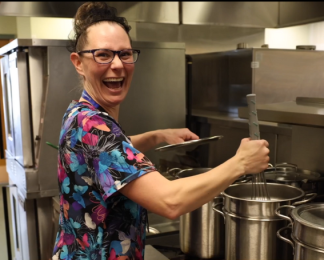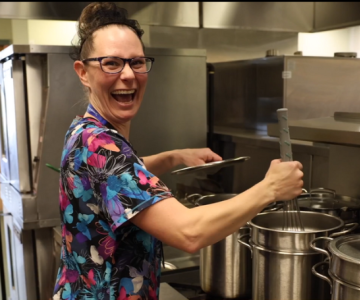Cheyenne Fath is a youth and peer outreach worker and lived experience educator in Penticton. Through her experiences, she knows first hand how addiction impacts individuals, families, and whole communities.
The best way to tackle these issues, and to drive change for the better, is to do it together. And Cheyenne says that starts with thinking twice about how we view drug addiction by recognizing that addictive behaviour is more common than people realize.
“We are all addicted to our own vices,” says Cheyenne, who works closely with Interior Health’s substance use team. “For some people it may look like too much caffeine, exercising beyond what's considered healthy, or overeating. Perhaps your thing is adrenaline and you indulge in risky stunts that no ‘normal’ person would do, or you impulsively lie to those around you, or maybe you just really like spending money.”
Cheyenne adds that it’s good to be speaking about substance use because of its high propensity to lead to addictive behaviour. These are challenging times.
But challenging times also brings out the best in communities – it rallies people to support those in crisis. It was with that in mind that Interior Health established Community Action Teams in nine communities: Cranbrook, Nelson, Castlegar, Grand Forks, Kamloops, Central Okanagan, Penticton, Vernon and Williams Lake.
These were established in response to the overdose crisis, recognizing that communities play a critical role in saving lives and connecting people to treatment and recovery. Community Action Teams target local resources where they are needed most and strengthen local partnerships.
“By raising awareness about the far-reaching impacts of stigma and addiction, increasing education about how to access supports, and furthering our efforts to work alongside our community partners, we can change the narrative and help people on their journey to wellness,” says Debi Morris, network director for mental health and substance use in Interior Health.
Says Cheyenne: “With the ongoing opioid epidemic now in tandem with the COVID-19 pandemic and systems, services and individuals stretched and wearing thin, the drug overdose death toll is higher than ever and seems to be steadily increasing. It's time we stop turning our heads and closing our eyes to these issues."
Visit Substance Use and Addiction to learn more.
About National Addictions Awareness Week
During National Addictions Awareness Week, Nov. 21-27, we are supporting the Canadian Centre for Substance Use and Addiction by highlighting resources about substance use and addiction treatment and supports. National Addictions Awareness Week is held annually, and focuses on highlighting solutions to help address the harms related to alcohol and other drug use. It provides an opportunity to learn more about prevention, to talk about treatment and recovery, and to bring forward solutions.
Join us this week as we post about different topics related to addiction, including stigma, alcohol, gambling, adverse childhood experiences, opioids, cannabis, and COVID-19 and mental health.
Follow the hashtag #NAAW2021 and help us spread the message that recovery is possible, addiction is a medical condition and not a choice, there is information available about treatment options, and how stigma plays a role as a barrier to care – a barrier that we can break down.


